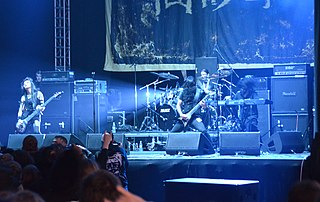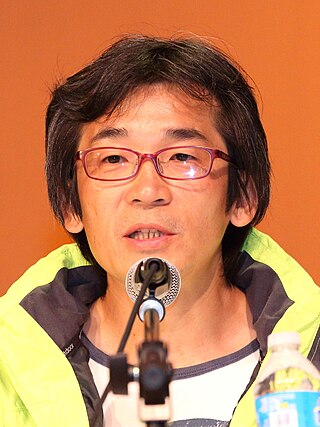Seediq may refer to:
- Seediq people, of Taiwan
- Seediq language, their Atayalic Austronesian language
- Warriors of the Rainbow: Seediq Bale , a 2011 Taiwanese film about the 1930 Wushe Rebellion by the Seediq against Japanese colonial rule
Seediq may refer to:
Chinese may refer to:
Rainbow Warrior(s), rainbow warrior(s), or Warriors of the Rainbow may refer to
Taiwanese may refer to:
Taroko may refer to:

The Musha Incident (Chinese and Japanese: 霧社事件; pinyin: Wùshè Shìjiàn; Wade–Giles: Wu4-she4 Shih4-chien4; rōmaji: Musha Jiken; Pe̍h-ōe-jī: Bū-siā Sū-kiāⁿ), also known as the Wushe Rebellion and several other similar names, began in October 1930 and was the last major uprising against colonial Japanese forces in Japanese Taiwan. In response to long-term oppression by Japanese authorities, the Seediq indigenous group in the settlement of Musha (Wushe) attacked a Japanese village, killing over 130 Japanese. In response, the Japanese led a relentless counter-attack, killing over 600 Seediq in retaliation. The handling of the incident by the Japanese authorities was strongly criticised, leading to many changes in Aboriginal policy.
Gaya may refer to:
The naming customs of Indigenous Taiwanese are distinct from, though influenced by, the majority Han Chinese culture of Taiwan. Prior to contact with Han Chinese, the Indigenous Taiwanese named themselves according to each tribe's tradition. The naming system varies greatly depending on the particular tribes. Some tribes do not have family names, at least as part of the personal name.
TRV can refer to:

Chthonic is a Taiwanese heavy metal band, formed in 1995 in Taipei. They have been called "the Black Sabbath of Asia." The group incorporates influences from traditional Taiwanese music, including adaptations of folk songs and the use of traditional instruments, most notably the erhu. Their stated goal is to use their music to bring ancient history and mythology into the modern era especially to build awareness of the myths of Taiwan and tragic events in that country's history.
Seediq, also known as Sediq, Taroko, is an Atayalic language spoken in the mountains of Northern Taiwan by the Seediq and Taroko people.
Nolay may refer to:

Seediq Bale is the fourth studio album by Taiwanese black metal band Chthonic, released in 2005. The album was the band's first to receive full promotion and release outside of Asia, being released in November 2006 in the United States and worldwide in February 2007. It was positively reviewed by several websites and magazines,,, and boosted them into several popular magazines such as Terrorizer, as well as onto the lineups for both Ozzfest and Wacken Open Air.

The Seediq are a Taiwanese indigenous people who live primarily in Nantou County and Hualien County. Their language is also known as Seediq.

Wei Te-sheng is a Taiwanese film director and screenwriter. He directed Cape No. 7, currently the highest grossing domestic Taiwanese film and the second highest-grossing film in Taiwanese film history.

Warriors of the Rainbow: Seediq Bale is a 2011 Taiwanese historical drama film written and directed by Wei Te-sheng and produced by John Woo, based on the 1930 Musha Incident in central Taiwan.
The Atayalic languages are a group of Formosan languages spoken in northern Taiwan. Robert Blust considers them to form a primary branch within the Austronesian language family, However, Paul Jen-kuei Li groups them into the Northern Formosan branch, which includes the Northwestern Formosan languages.

The Northern Formosan languages is a proposed grouping of Formosan languages that includes the Atayalic languages, the Western Plains languages, and the Northwest Formosan languages.
The 23rd Golden Melody Awards were held on 13 June 2012 at Taipei Arena in Taipei, Taiwan. The awards ceremony gave musical awards to musicians and songs in languages such as Mandarin, Taiwanese, and Hakka.
Yilan Creole Japanese is a Japanese-based creole of Taiwan. It arose in the 1930s and 1940s, with contact between Japanese colonists and the native Atayal people of southern Yilan County, Taiwan. The vocabulary of a speaker born in 1974 was 70% Japanese and 30% Atayal, but the grammar of the creole does not closely resemble either of the source languages.
Events from the year 1880 in Taiwan, Qing Dynasty.